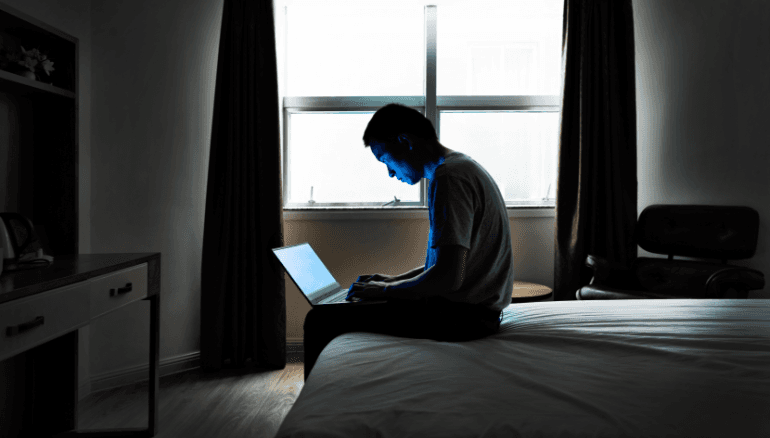Question
Can the blue light from screens affect fertility?
Answer
Screen viewing cops a lot of blame for a bunch of modern problems — poor concentration, poor nutrition, inactivity, mental illness, lack of sleep, my children’s terrible taste in music… the list goes on. There’s decent evidence to support some of these concerns, but not all of them.
The potential for screen viewing to impact fertility seems to get a lot of attention on the internet but there are no relevant scientific data I can find that back up these claims. However, a lack of evidence for screen viewing’s effect on fertility isn’t the same as evidence showing a lack of an effect.
First, a quick explainer on blue light — it’s on the spectrum of colours, coming naturally from the sun and artificially from our digital devices, as well as LED and fluorescent lighting. Blue light is a short wavelength, which produces higher amounts of energy.
There’s no question that light affects reproduction. There is a wealth of scientific data showing that if you change light exposure, you can alter breeding in sheep, goats, cows and chickens, and there’s a reasonable explanation for why light from screens might affect humans.
When light hits your retinas at the back of your eyes a message is sent to your pineal gland (found in your brain) inhibiting the production of the hormone melatonin. It’s one of the most important regulators of your body clock. Usually, as the sun goes down and light levels fall, your melatonin level increases to be at its highest level overnight. Your melatonin level starts to fall before you wake and is kept low by light during the day.
Among its many roles, melatonin affects your reproductive system by acting on your brain and reproductive organs. If something disturbs your melatonin levels, so the reasoning goes, then it might affect your reproductive system.
The wavelength of light that inhibits melatonin production is in the blue part of the spectrum, so the blue light from screens can reduce production of melatonin and its level in your body. Using filters to reduce the amount of blue light from screens that reaches your retinas is an effective way to prevent it from inhibiting your melatonin production.
Sleep can be affected by the blue light from screens and filtering it out reverses this effect. It is proposed that the same effect might occur for reproduction.
For now, we don’t know the effect on fertility of blue light from screens. There are other reasons why you might want to avoid looking at a screen in the evening. Getting more sleep will increase your testosterone levels, which can increase your energy levels and sex drive. And if you’re not on a screen during the evening, you’re sure to find other ways to spend your time…











